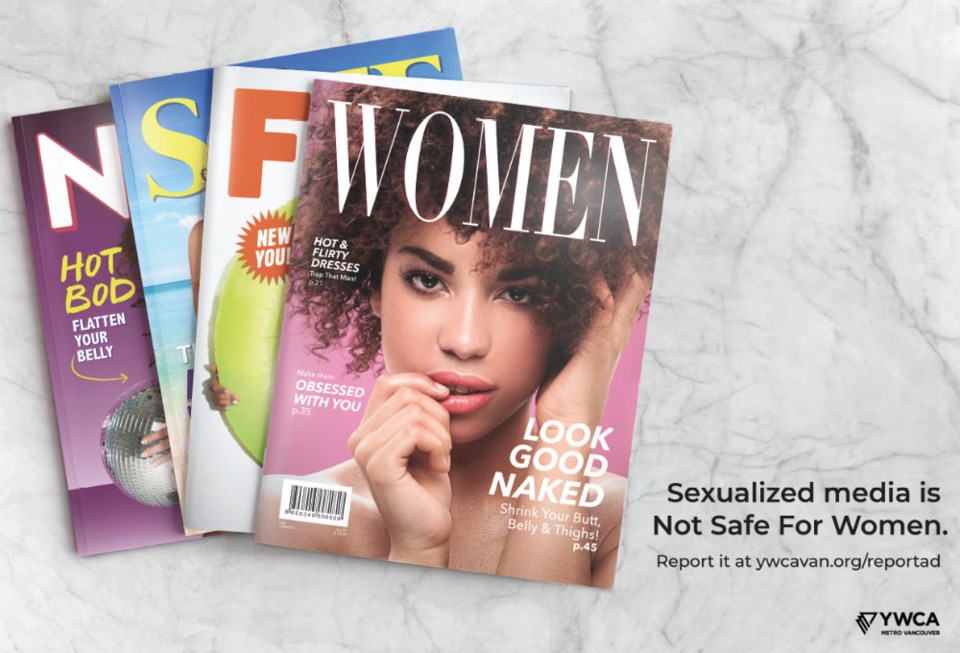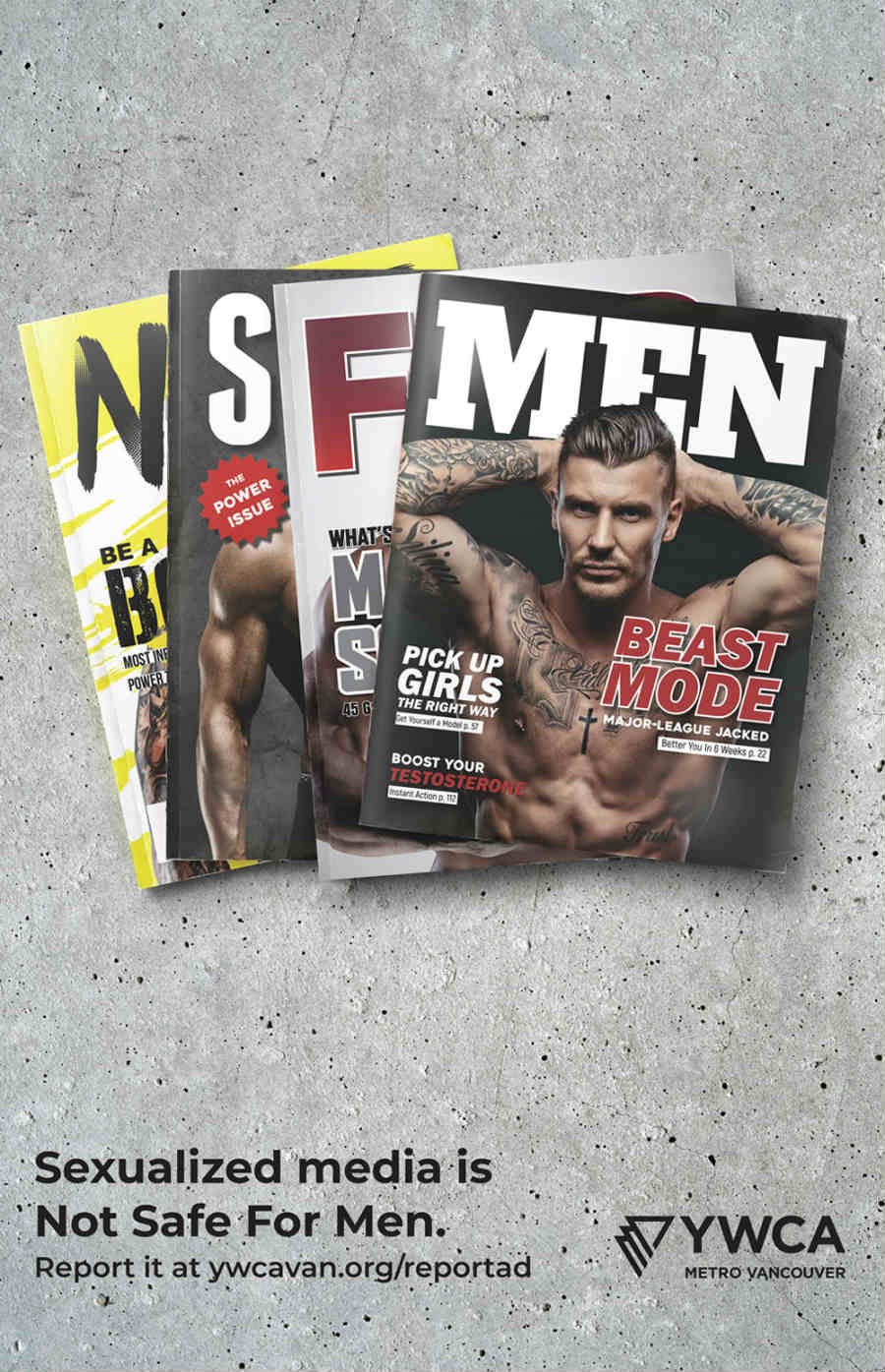 Photo YWCA
Photo YWCA
Have you seen these advertisements pop up in your Instagram or Facebook feed or walked by them inside SkyTrain stations?
The ads are part of YWCA Metro Vancouver's 'NSFW' campaign to raise awareness of harmful and limiting gender stereotypes in popular media.
NSFW is internet slang for Not Safe For Work but the YWCA has adapted the term for their campaign to raise awareness that sexualized media is Not Safe for Women, men and teens.
“This campaign uses real magazine headlines to encourage people to think critically about the ads and media they see everyday,” says Amy Juschka, acting director of marketing communications at YWCA Metro Vancouver. “We hope it will start conversations about the need for popular media to be more diverse and realistic in its representations of people and relationships.”
Research shows that ads promoting hypermasculinity or that hypersexualize women and girls can contribute to mental health issues and relationship problems.
Hypersexualized models of femininity in the media can cause girls to feel anxious about their appearance, develop eating disorders, lower their self-esteem and spiral into depression.
These stereotypes can harm boys as well by normalizing violence against women and girls. Boys see how their bodies are portrayed in contrast to girls and are led to believe success or attractiveness is tied to dominance, power and aggression.
 Photo YWCA
Photo YWCA
In April, the YWCA launched an online tool to encourage the public to report ads or content in TV or radio shows by lodging a complaint with the Advertising Standards Canada and Canadian Broadcast Standards Council.
Anyone can snap a photo of the ad or write down the time and date it was shown and fill out a series of boxes on the YWCA website to make a complaint, which takes under seven minutes.
These initiatives are part of the YWCA's Culture Shift project, which is funded by the federal government. The goal of the three-year project is to raise awareness of the systemic impacts of sexualization and hypermasculinization.



